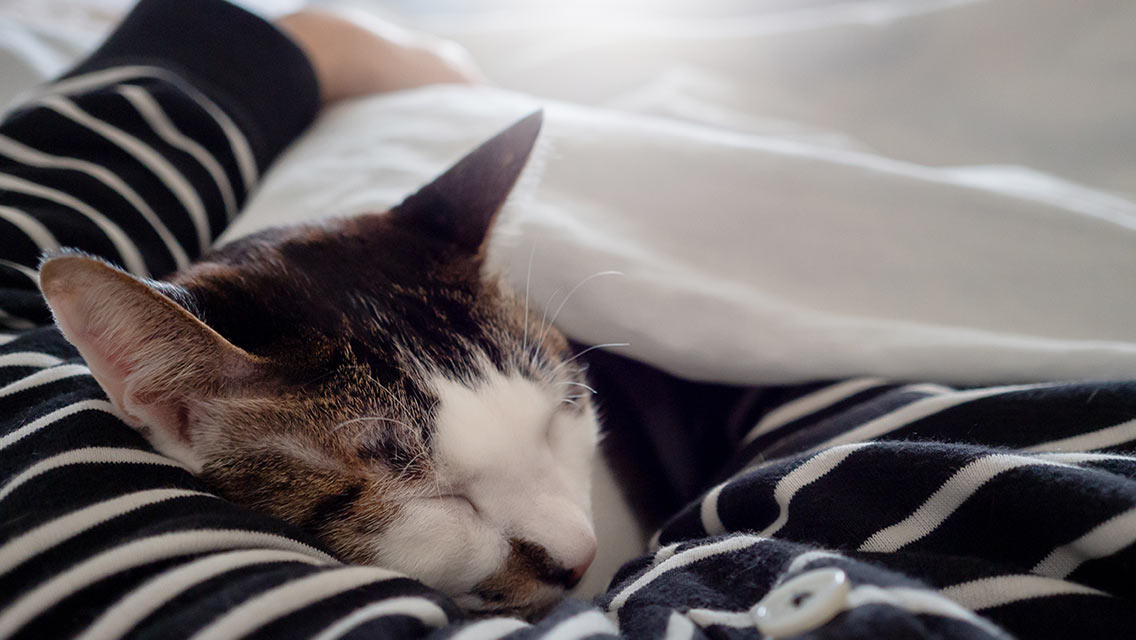What with creeping inflation, a lingering pandemic, and inklings of World War III, you’d think the senior set would have enough to worry about these days without having to ponder the potential hazards of an afternoon nap.
That’s the thought that occurred to me after hearing about a new study suggesting a “bidirectional” link between daytime snoozing and dementia. More specifically, researchers at Brigham and Women’s Hospital and the University of California San Francisco (UCSF) argue that seniors who find themselves regularly napping for long periods may be unwittingly inviting an Alzheimer’s diagnosis. Indeed, too much siesta time may be a sign that the disease has already taken hold.
“Daytime sleep behaviors of older adults are oftentimes ignored, and a consensus for daytime napping in clinical practice and healthcare is still lacking,” says lead study author Peng Li, PhD, an assistant professor of medicine at Brigham and Women’s Hospital. “Our results not only suggest that excessive daytime napping may signal an elevated risk of Alzheimer’s dementia, but they also show that faster yearly increase in daytime napping may be a sign of deteriorating or unfavored clinical progression of the disease.”
We tend to think of the afternoon nap as a practical antidote for a fitful night’s sleep, but Li and his team found that the association with dementia remained after adjusting for the quantity and quality of nighttime slumber. Among the 1,401 participants whose sleep time was monitored over the course of 14 years, those who napped more than an hour a day were 40 percent more likely than their less drowsy peers to develop Alzheimer’s.
The culprit, researchers believe, may be a dearth of what they call “wake-promoting” neurons in three parts of the brain. Earlier postmortem studies have found that Alzheimer’s sufferers lacked these neurons, probably as a result of an accumulation of tangled tau proteins.
My Lovely Wife is a night owl and every so often will retreat to our bedroom in the midafternoon to recharge. Not long after she settles in, though, one of our two cats typically arrives uninvited to interrupt her slumber. I’ve never known her to snooze for more than a half hour, nor does she prefer to conk out for long periods. I find this somewhat soothing in light of Li’s research, though there are a few other aspects of the study that should calm even the most committed nappers.
Volunteers were fitted with an Actical device which they wore on the wrist of their non-dominant arm for up to 14 consecutive days each year they participated in the study. It recorded movement throughout the day, and researchers interpreted any periods of nonmovement between 9 a.m. and 7 p.m. as naptime. This process, the study’s authors admit, is not as accurate as using polysomnography to measure sleep, and it makes me wonder how many of the mostly motionless hours I spend each day reading might be seen by the watchlike device as one long nap.
Researchers also acknowledge that the age of the participants — 81 years on average — may make it difficult to extrapolate their findings to a younger cohort. And they can’t prove a causal link between too much napping and dementia. It’s possible that the more frequent nappers are simply less healthy than those who stay off the couch.
“I don’t think we have enough evidence to draw conclusions about a causal relationship, that it’s the napping itself that caused cognitive aging,” notes cosenior author Yue Leng, MD, PhD, an assistant professor of psychiatry at UCSF. “But excessive daytime napping might be a signal of accelerated aging or cognitive aging process.”
I did not mention any of this to MLW the other day after she was rousted from a brief midafternoon snooze by our overly affectionate tabby. MLW is a dedicated Sudoku and word-puzzle fan whose neurons typically function at a markedly higher level than those of her nonnapping husband, so it seemed unnecessary to raise any concerns. Besides, don’t we have enough to worry about already?





This Post Has 0 Comments